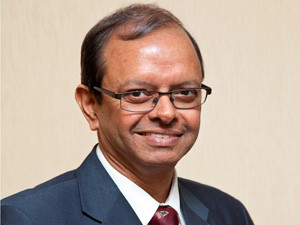
While SA's business process outsourcing (BPO) market is growing considerably, there is still a lot the sector can learn from India.
So said Ganesh Natarajan, vice-chairman and CEO of Zensar Technologies, in an interview with ITWeb yesterday. Zensar is an India-based outsourcing company that operates in the US, Europe, Africa, the Middle East and Asia-Pacific regions.
According to India-based BPO body Nasscom, 2012 is a milestone year for the Indian IT-BPO industry, with aggregate revenues crossing the $100 billion mark and exports reaching $69 billion.
The body adds that within the global sourcing industry, India was able to increase its market share from 51% in 2009 to 58% in 2011, highlighting India's continued competitiveness and the effectiveness of India-based providers in delivering transformational benefits.
As a proportion of national GDP, the sector revenues have grown from 1.2% in 1998 to an estimated 7.5% in 2012, says Nasscom.
Aegis Outsourcing SA says the local BPO market has experienced an estimated 10.5% growth year-on-year.
"In South Africa, the BPO industry employs approximately 200 000 people directly and indirectly, and is growing annually in double digits - one of the only industries growing at such a rate. In the Western Cape alone, BPO contributes an estimated R7.9 billion to the GDP," the company says.
According to research firm SourcingLine's rating of countries based on their attractiveness as outsourcing destinations, using factors such as cost competitiveness, resources, skills and operating environments, India scored 7.1, Indonesia 6.9, China 6.4 and Philippines 6.3, while SA scored 4.6.
Natarajan noted that almost 80% of the Fortune 500 companies in the US are doing work through Indian companies.
"Most of our competitors in the outsourcing market, like China, Philippines and Ireland, have good technological skills but do not have the skills and the scalability to really understand the market. That is why India is the leader in outsourcing."
However, he believes there is no reason why the South African market can't grow, considering the country has a young population with the majority able to communicate in international languages like English.
"Today I know that there is great work going on in the BPO industry here and I believe that what India has achieved in the last 20 years can also be done in South Africa," he said.
"One of our goals to boost the sector here is to work with government agencies and academic institutes to grow the industry. The opportunity is there for SA to participate in this outsourcing revolution and create jobs."
As an example, Natarajan pointed out that the Philippines is doing well, especially in the outbound call centre market - something SA is trying to achieve. "The Philippine call centre industry is bigger than India's, but if you look at the actual IT back office, India is way ahead of them. Even China, which has an interesting outsourcing model, cannot be compared to India."
Also speaking to ITWeb, Harish Lala, VP and regional business head for Africa at Zensar, revealed that IT skills shortages was one of the main problems besetting the local outsourcing market.
He revealed that Zensar, which has been active in SA for several years, provides IT outsourcing services to the South African market and also invests in sustainable local skills development to create a balanced mix across shores.
Zensar has a development centre in Rivonia, where local graduates are trained and then work to support the business' clients. The company says that, as it expands its operations into the rest of Africa, this development centre will serve as an offshore centre for those countries, where the same model will be gradually rolled out.
Share